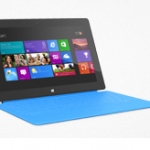5 big myths surrounding computer security and HIPAA compliance

For those in the States, the mad dash to compliance is unquestionably on. After years of taking a "wait and see" approach to Health Insurance Portability and Accountability Act (HIPAA) regulations surrounding medical office technology, healthcare providers (and related covered entities) are scrambling to get their systems and procedures in order. Big Brother has officially set a September 23, 2013 deadline for most new rules that put into place heightened protocols for how patient information (PI) is shared as well as how notifications about breaches need to be handled, among other things.
Naturally, a lot of my consulting clients in the healthcare industry are reaching out for professional help on how to get their IT systems in line as these deadlines approach. One of the biggest facets of the new HIPAA laws, which affects companies like mine that provide hands-on IT consulting, is that for the first time ever we are being considered "covered entities" in the same boat as the healthcare outlets themselves.
5 major reasons why Surface RT is here for the long run

Just two years ago, before the Surface RT was even on the horizon, another alternative entrant in the computing market was posting miserable (Surface RT-esque) sales after launching. The suspect in question, Chromebook, was only able to post about 5000 units sold for Acer in the two months after its launch in June 2011. Samsung supposedly fared even worse. Analysts across the industry were taking bets on when Google would throw in the towel on Chromebook. They all but called the device destined to fail.
Fast forward just two years, and Chromebooks now represent the fastest growing PC segment already. In fact, as of July 2013, they officially snagged 20-25 percent of the sub-$300 laptop market. And the warm feelings for Chromebook are anywhere but over. The radical alternative to Windows and Apple laptops is poised to grow another 10 percent in just 2013 alone. The burning question still stands: how did the analysts get it so wrong?
How To: Use Outlook.com as a free custom domain email host

Google shocked the tech world back in December of 2012 when, out of nowhere, it announced that Google Apps Free Edition was going bye-bye. I was also a bit disappointed to hear about this, as it provided a free way for clubs and small businesses of 10 users or less to leverage the power of Google Apps for their email, calendaring, contacts, etc.
Yet as a consultant to numerous clients supporting clients on the Free edition, who knows the unreasonable expectations they sometimes hold the (free) service to, I can see Google's justification for pruning the bushes here. We can all agree: it was good while it lasted.
Four big reasons Xbox One, not PS4, will win over the masses

With Microsoft's recently-announced reversal of its anti-consumer DRM policies for the Xbox One, the next gen console war has suddenly been brought back to a level playing field. It's no longer a battle of who had the upper hand at E3 this year, who does/doesn't require impractical internet connectivity 24/7, or whose specs are better on paper. The most hated DRM underpinnings on the Xbox One have been unequivocally rescinded, meaning that we can finally have an honest discussion of what the two next gen consoles will offer apples-to-apples.
While Sony has been squarely riding its momentum on cruise control since E3 this year, trying to keep the debate on its terms after usurping Microsoft in the opinion war, reality is coming back into the middle ground finally. And seeing that we are just months away from these hotly anticipated console launches, Microsoft is slowly unraveling its winning plans for the Xbox One.
Cloud insecurity? It's a perception problem, new study finds

I've long been a believer that a judgement gap, influenced largely by negative media coverage, is what continues to hold back cloud adoption among small organizations. And judging from the results of a recent study completed by comScore, my intuition has been fairly on track. The biggest issue surrounding cloud uptake, at least for small businesses worldwide, seems to be none other than an issue of perception.
How so? The study, which surveyed companies with between 25 to 499 computers in the USA, Germany, France, and the UK, found that 42 percent of small businesses which had yet to adopt cloud technologies were concerned about reliability/uptime. Likewise, a full 60 percent had cited issues with data security as reasoning for staying cloud-free.
SharePoint isn't why Snowden breached the NSA -- lax security is

In what can be called nothing less than a clever use of well-planted deflection, the head of the NSA, General Keith Alexander, recently let loose that the NSA relies heavily on Microsoft SharePoint for its data sharing needs. Or, more accurately, he decided to namedrop on SharePoint to allude to a mistaken notion that the inherent use of SharePoint was the reason why the NSA got breached by Edward Snowden recently.
The information was first picked up by The Register after the General was caught making the admission at a recently broadcast cyber security forum (which can be viewed on YouTube in its entirety). He described of Snowden: "This leaker was a sysadmin who was trusted with moving the information to actually make sure that the right information was on the SharePoint servers that NSA Hawaii needed".
7 big mistakes K-12 education needs to avoid in 1:1 computing plans

After spending a number of years working in the educational tech sector, I can safely pinpoint the two camps that make up the meandering discussion about 1:1 computing plans for K-12 education today. On the one side, we have eager innovators who are determined to place a device in each student's hand -- even if that device fulfills nothing more than a checkbox on an administrator's 'five year outlook' plan.
And in contrast, we have the technical neophytes who are well entrenched in their opposition to devices in the classroom. These folks are the ones most likely to be ingrained in the "industrial force-feeding" approach to education, which by most accounts, is falling flat on its face. As the US continues to slide in education, most recently ranked 17th globally, the debate is no longer whether or not we need a wholesale adjustment of how we teach our youngest minds. Much more importantly, the discussion should be laser focused on how we get US education out of its growing rut.
Windows-as-a-Service a step closer to reality as Azure RDS opens up

Microsoft slipped one under the radar for everyone who relies on its Azure service for Windows virtual machines. In a move that even took me off guard, Microsoft has reversed a longstanding policy of not allowing any form of RDS (Remote Desktop Services) on Windows Azure.
Previous policies strictly enforced remote desktop access on Azure only for the purposes of "administration and maintenance." As of July 1, this stumbling block for many Azure early adopters is finally gone, with a few caveats which I'll point out shortly.
Active Directory-as-a-Service? Azure, Intune hinting at a cloud-hosted AD future

When Active Directory first hit the enterprise computing scene over a decade ago, the tech pundits dismissed AD as just another Microsoft sideshow. Something that would never see any widescale adoption in the face of NetWare and other heavy hitters in the LDAP arena. Even longtime Microsoft watcher Paul Thurrott got it wrong and doubted success. Thirteen years later and organizations small and large live and die by their Active Directory domains.
It's funny, then, that AD is the sole dinosaur running atop on-premise servers at corporations worldwide which supposedly "can't" be moved to the cloud. Microsoft has been busily converting its on-premise products into cloud platforms with relatively good results over the last 3-4 years. While Microsoft surely doesn't want to become a has-been within the physical server arena for organizations hesitant to move to the cloud, it no doubt has been playing two face when it comes to on-prem vs cloud-hosted solutions.
Curious what the NSA gleans from your Gmail? Now you can see for yourself

Ever since Edward Snowden leaked what seems to be the mother lode of the decade, the internet has been fervently abuzz with speculation about Prism. The (aptly named) program was setup by the United States NSA (National Security Agency) to work hand in hand with internet giants to cull over mountains of data related to users of numerous services from Facebook to Gmail to Hotmail. Whether or not this information is accurately being used for its intended purpose -- thwarting terror attacks -- is still up for debate. But one thing we do know for sure is not only the type of data being plucked, but more importantly the overarching power this data yields.
It seems the crafty folks at MIT haven't been sitting back and watching this drama unfold. They've gone ahead and launched a representative cloud tool called Immersion that is very accurate in its portrayal of the inner workings of your entire digital life (or at least, the one contained to your Gmail account). National Journal's Brian Fung first covered this astonishing project, and it was since picked up similarly by eWeek.
Steve Ballmer's hits and misses from Build 2013 keynote

Perpetual release cycles. Windows 8.1. The unified Windows ecosystem. If there are any key takeaways to remember from Microsoft's cornerstone keynote at the Build 2013 conference, these three items would sum it up quite well. Microsoft CEO Steve Ballmer reminded thousands of developers on stage last week that the company isn't getting left in the dust and it has a solid plan going forward.
While most of the tech world was keenly focused solely on Build 2013 as the gateway to the first official peek at Windows 8.1, Ballmer's keynote had a few other important messages to deliver. The Windows update, formerly known as "Blue", may have stole the show but Microsoft had a grander agenda to piggyback at the developer conference.
Office Web Apps to get Google Docs style real time co-authoring 'very soon'

If you're an avid SkyDrive or Office 365 user who happens to leverage Office Web Apps, Microsoft let loose information on a round of updates that will be hitting the browser based suite quite "soon" according to an official Office 365 blog video.
The posting was part of Microsoft's informal "Garage Series" set of video-blogs aimed at IT professionals who support Office. I happened to stumble upon this week-old entry and was quite surprised at what Microsoft has in store -- namely, hitting Google Docs where Office Web Apps haven't been able to thus far: rich real time co-authoring and collaboration.
New Windows 8.1 Start button, 'boot to desktop' already in the wild

The hype bubble around Windows 8.1 is steadily building this week. Microsoft will supposedly dump a full preview version of 8.1 in ISO format, and the rumored date across the net happens to be June 26. In step, BetaNews readers have been sounding off on Wayne Williams' post asking the big question at hand: Will you be installing Windows 8.1?
Interestingly, just by chance, I found out myself that you don't need to wait until the 8.1 ISO hits the web. Some of the biggest, and most requested, changes are already floating around in the wild -- albeit in a slightly different package than you may expect. Both the new Start Button and the 'Boot to Desktop' option are fully viewable in the latest Windows Server 2012 R2 preview build. You can download a full preview copy for yourself over at TechNet.
Lync Online: A professional, cheap GoToMeeting and Webex alternative [review]

Online meetings have been synonymous for nearly the last decade with well known platforms like GoToMeeting and Webex. And rightfully so. Both cloud collaboration suites are fairly mature offerings, with expanded feature sets that replicate (nearly) every aspect of a face to face meeting. As an IT professional by day, I'm frequently involved in client meetings over both platforms and have helped countless others leverage these products for their own businesses.
Yet there are numerous things which irk me about the status quo from these two offerings. The biggest happens to be the substantial cost attached to each. It's hard to believe that two platforms with such maturity have not been able to bring their price levels down considerably with as much engineering and prevalent, cost-effective cloud technology as exists today.
Virtual U.S. Congress: a practical, plausible way to save millions in waste

The very notion of telecommuting has been present in the mainstream white-collar workplace now for well over a decade. Yet for one of the worst offenders in padding operating and travel expenses, namely the U.S. Congress, the notion of mentioning telecommuting seems to be downright sinful. One would think that these calls for a "virtual Congress" come from watchdog groups of various political winds. But shockingly enough, one of Congress' very own -- House member Steve Pearce of New Mexico (R) -- is leading the push to bring our legislative branch full circle into the 21st century.
The premise behind the technical, and very much cultural, shift in thinking for how Congress does its business is quite down to earth. "Corporations and government agencies use remote work technology; it’s time that Congress does the same," says Pearce on a landing page for his initiative. "Members of Congress can debate, vote, and carry out their constitutional duties without having to leave the accountability and personal contact of their congressional districts." A wholesale breath of fresh air, I say.
Derrick's Bio
Derrick Wlodarz is President and Founder of Des Plaines, IL (USA) based Managed IT Service firm FireLogic. He has 13+ years of IT industry experience spanning the private and public sectors. His firm specializes in providing SMB clients with managed IT support, consulting, and training. Derrick is a long-serving member of CompTIA's Subject Matter Expert Technical Advisory Council that shapes the future of CompTIA exams across the world. In addition to being an IT industry speaker, his work has been academically published in The Journal For Social Era Knowledge. You can reach him via email at [email protected].
© 1998-2024 BetaNews, Inc. All Rights Reserved. Privacy Policy - Cookie Policy.
